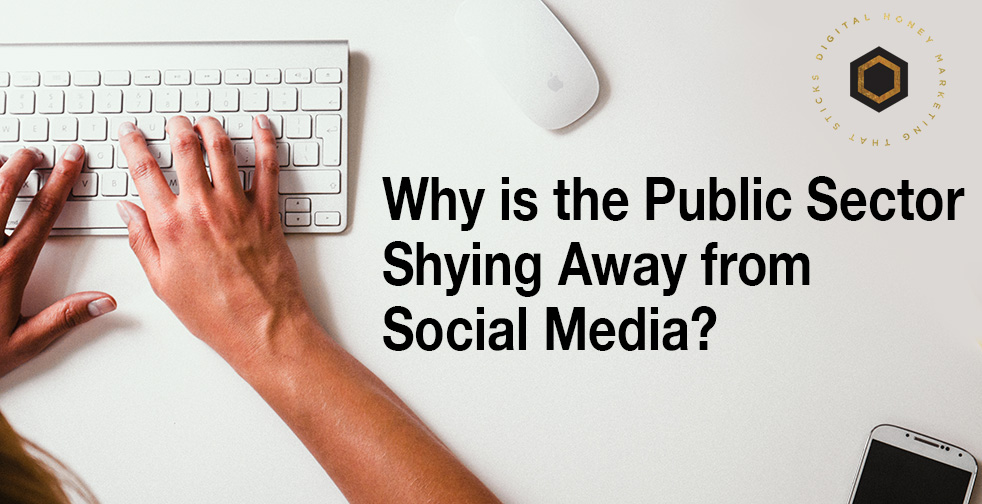Social media in the public sector: why it matters
Social media presents an incredible opportunity for local government and public sector agencies to connect with their communities. Organisations can reach out like never before and engage in conversations on everything from policy development and service provision, to social issues and emergency management.
Yet despite the benefits, agencies are still wary of social media, favouring traditional channels instead. The Leaders’ Report – The Future of Government Communications found that print, radio and TV still accounts for as much as 97% of marketing spend.
Why are we scared of social?
Two reasons – resources and risk.
According to The Leaders’ Report, 40% of participants feel they lack the necessary understanding of social media management and unfortunately, teams often don’t have the time, money or capacity to train them.
Social media also presents a number of risks unique to government and the public sector, and so government agencies often favour ‘safer’ traditional methods instead.
What are the risks of using social media in the public sector?
Participation
Opening up a platform to the community provides a valuable opportunity to discuss ideas, seek feedback, conduct research and build relationships. However, this can backfire if you don’t have the resources to manage conversations or respond to feedback, especially criticism and complaints.
Liability
Open communication, while overwhelmingly positive, leaves your agency vulnerable to liability. You’re ultimately responsible for your social media content, and if you fail to moderate misleading, obscene, defamatory or illegal content posted by a third party, this could present a public relations situation at best and a legal issue at worst.
Compliance
Social media communications to or from government or public sector employees are deemed to be public records and legally must be preserved as such. However, manually copying large volumes of data is unfeasible, the platforms themselves can’t be relied upon for storage, and third parties can delete their content at will.
Decentralisation
Allowing sub-groups of an organisation to control their own social media presence is risky. While it humanises the agency and allows for greater connection, staff lacking proper training can dilute the voice and message of the ‘brand’ or worse, open you up to public relations issues. For this reason, central communications teams are often reluctant to hand over the reins.
Security
Social media is blurring the line between professional and personal life. For a government agency, this poses numerous security threats. It’s not difficult for those with malicious intentions to glean information from unsecured personal profiles, and both government and personal accounts could be vulnerable to hacking.
How do we manage the risks?
All of these risks can be mitigated with a comprehensive social media policy, providing clear, consistent guidelines on everything from branding to security.
Here are eight areas to consider when designing your own policy.
1. If you decide to participate in conversations, set out guidelines for how you’ll monitor discussions, who will respond, how quickly you’ll respond, and how you’ll address or refer issues.
2. Set out when it’s appropriate to respond. It’s not always necessary, but if an issue is unfolding based on incorrect information, for example, it’s absolutely appropriate to step in quickly and set the record straight.
3. Internally, establish which content should be prohibited and how you’ll respond. Publish this prominently on your social media platforms as part of your Terms of Use, so that users know exactly what constitutes acceptable behaviour.
4. You can opt to pre-approve posts, giving you the opportunity to filter out problematic content in advance. Alternatively, you can examine posts retrospectively and remove anything that violates guidelines. Whichever you decide, have a clearly defined process in place.
5. NSW’s Future Proof Strategy offers guidance on protecting and managing government records and is widely considered the gold standard in digital record keeping. You may also consider an external service that automatically captures and archives large volumes of social media content for you.
6. To maintain a consistent voice and message, establish clear brand guidelines to which your staff can refer and provide training if necessary. This can cover stylistic factors such as tone (professional vs casual), content factors such as company stances on particular issues, and procedural factors, such as your complaint management policy.
7. Define who has access to your social media accounts and in what capacity. You can add additional layers of security, such as requiring password encryption and restricting access to approved, protected and monitored devices.
8. Encourage total separation of work and personal accounts. Even apparently benign information can be used for malicious purposes, so advise your employees to refrain from sharing work-related information on personal pages altogether.
Need help creating an effective, risk-free social media policy?
Social media is revolutionising community engagement and there’s no reason for you to miss out. With a strong social media policy, you can reap the benefits for your community while minimising the risk to your organisation.
If you need support in developing your policy, or if you and your team could benefit from social media training, Digital Honey can help. Visit our Training page now to find out more about our bespoke public sector and government social media training, or contact us to discuss your policy needs today.
NEW ONLINE COURSE:
Social Media 101 for Councillors
Are you a Local Government elected member keen to improve your social media presence?
Leave your email to get early bird prices and the latest course information
Thank you for your interest - keep an eye out for the discount code for early bird pricing and further course information.



